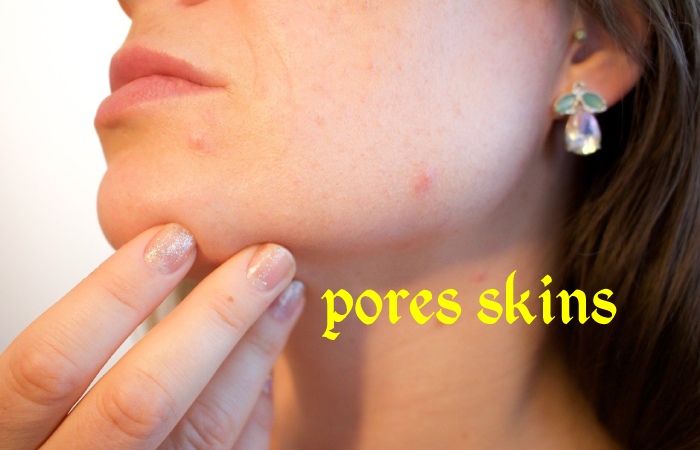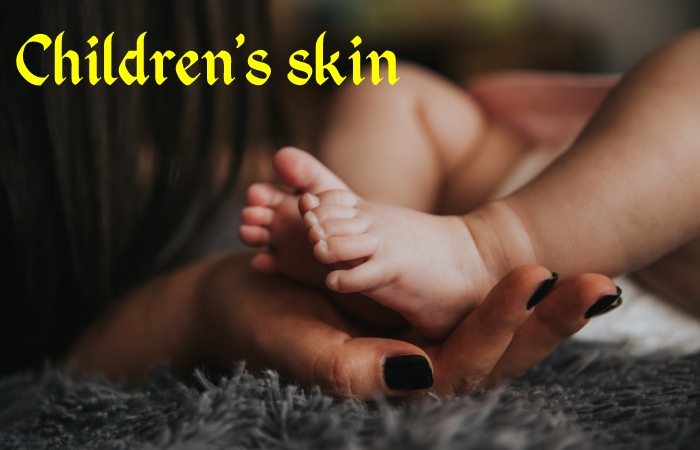In winter approaches with a thick down cover and fur shoes, it also becomes uncomfortable for our skin. The colder it gets outdoor, the warmer we love it inside: We turn up the boiler and crawl onto the cosy sofa. But when the sun originates out on lovely winter days, we go aimed at walks in the cold, together with pressure on the skin.
The heating air removes our skin’s dampness, making it subtle and rough. Due to the dry heat, the skin transports more water to the surface and dries out. Even in the cold air external, the humidity is self-same low in winter, promoting dehydration. The blood bowls under the skin contract to keep the body’s balminess confidential in the cold.
Blood circulation in the skin is reduced. Consequence: She gets too little oxygen and nutrients, her metabolism is put on hold, and she is pale. The skin is more subtle to the sun, pollutants and irritants penetrate more easily.
At temperatures below eight degrees Celsius, the sebaceous glands also go on general strike. The natural, protective oil film is supplied by hundreds of small sebaceous glands in the skin. As the temperature drops, these glands produce less and less sebum.
In extreme cold, this fat production can even be stopped completely. In this way, a vital component of the skin’s natural protective layer is lost. Due to the lack of a greasy film, water evaporates more quickly from the skin’s surface.
Low humidity at low temperatures and dusty air in overheated rooms promote evaporation. And the wind also hurts the skin’s surface.
Table of Contents
Blood Flow To The Skin
Blood circulation in the hands, feet, ears, tip of the nose and the entire skin is reduced in cold air. The renewal of the top layer of skin is slowed down, and repair mechanisms are reduced.
The defence mechanisms are also reduced, and the risk of infections caused by viruses (warts), fungi and bacteria increases. On average, the skin is less flooded because there are often fewer sports and leisure activities outdoors than in summer.
A consequence of all the stress: The skin reacts with tension, unpleasant itching and flaking. A rough skin surface, wrinkles or a pale complexion can result. All skin parts that are not protecte by clothing Such as the face, lips and hands, are particularly at risk.
In the cold season, a significantly higher level of protection is required to keep the skin healthy. Missing oil on the skin’s surface should be replace.
Five to two litres of water, herbal or fruit tea daily
Skincare from the inside is also very productive, especially in winter. One and a demi to two litres of water, herbal teas or fruit teas daily moisturize the skin and pores.
Much of the pores and skin contains water. With the help of water, it also excretes pollution and degradation products. Liquids should be low in calories and preferably also decaffeinated.
Coffee and black tea are part of the entertainment. Skin Buddies also include healthy ingredients. Fresh fruit and vegetables provide vitamins, index factors and moisture.
Citrus fruits, peppers and kiwi, for example, provide the body with vitamin C and thus protect the skin from dangerous external influences. Dairy products, whole foods and fish also provide valuable ingredients suitable for the skin.
Facial treatment: full of character and intensive
A comprehensive, gentle care program defies the cold winter air and wasteland air in the office and living room. Oil and moisture factors are essential for daily skincare in winter weather.
Protects pores and skin from drying out and thus from harmful environmental influences and cold and robust temperature and humidity fluctuations.
This is particularly suitable for dry pores and skin types. Therefore, a baby care product must contain more fat in winter than in summer. Fatty water-in-oil lotions, cosmetic skin oils or a pure oil-in-water cream mainly containing lipids are of suitable quality to protect and care for the skin in winter weather.
A well-known trick to avoid hibernation is night care at this time of year and during the day. A soft powder helps to mattify oily reflections.
In very icy temperatures, for example, on descents, it is best to use cold safety lotions for sensitive skin areas and lips, nose and ears. However, if you live in permanently heated rooms These should be remove again to avoid overheating pores and skin.
Gentle cleansing of pores and skin in winter

The gentle cycle should now be the programme for pore and skin cleaning. Dealers of detergents usually have to remove as little moisture and oil from the skin as possible.
Mild cleansing milk is well suit. Moisturizing cleansing formulas, used sparingly, are the gentlest facial cleanser in winter weather. The oils clean gently and leave a nourishing film on dry skin.
Face lotions containing alcohol, face brushes or even a peeling could now be too competitive. On the advice of the German Medical Association. Be banne from the bathroom in winter.
Detergents with a skin-like pH value (approx. 5.5) are mainly suitable. Tanning agents or anaesthetics (hardly any local drugs) from parapharmacy help against the itching. Urea lotions can also help reduce itching.
We recommend mild cleansing milk or a refreshing facial tonic to clean the pores and skin for sensitive facial skin. Frequent washing with soap or shower gel can also be an additional burden.
Body care – and regularly: let your soul dangle
But not only the face but also the skin relaxation needs intensive care in winter. Experts advise very carefully applying a moisturizing emulsion from head to toe in the morning after a shower or bath.
Tip: It is not always good for the body skin to be expose to hot water for too long. After about ten minutes, the hot water will dry out the pores and skin.
A shower or bath oil as an additive has a moisturizing effect; It coats the pores and skin with a notable greasy film. You can then linger and relax in a bath so enriched and unwind for an impressive hour.
In addition to attentive care, sufficient humidity in the heated rooms also helps to prevent the skin from drying out. It is pleasant to open the house’s large windows three times in the afternoon for about 5 minutes to air out. Well-maintained humidifiers or cascades in the home can help increase humidity levels.
A winter walk in the fresh air wakes the spirit, promotes a good mood and is suitable for body and soul and thus – after appropriate exercise – also for the skin. Taking a 30-minute walk every afternoon stimulates blood circulation and gives the skin a touch-oxygen treatment.
- Bath additives and children’s skin
- Bath additives – potent additives
Our soul is reflect in our skin. Relaxation and enjoyment can be genuine miracle gestures for a radiantly beautiful complexion. Relaxing baths, for example, have a beneficial effect.
Herbal bath additives such as lemon balm or hops can also relax. If you opt for a stimulating bath additive, you should use medicinal plants such as mountain pine, rosemary or spruce needles.
Children’s skin

Winter influences also strain the pores and skin of our children. It is slightly more refined than adults, and its sebum production remains low.
That is why children’s skin needs special care, even in cold and heat. A thick cream protects the skin areas in direct contact with the air and the fingers and face. Ideally. Choose goods that are primarily intend for children.

